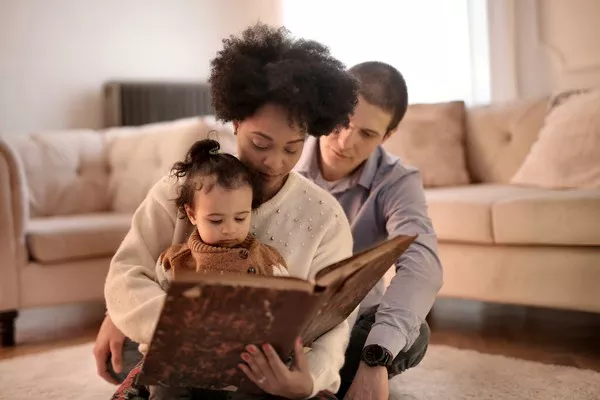Family plays a central role in our lives, shaping our identities and providing a foundation for personal growth and development. Within the family unit, each member assumes unique roles that contribute to the overall dynamics and well-being of the family. Positive family roles are essential in fostering healthy relationships, promoting emotional support, and nurturing a sense of belonging. In this article, we will explore the importance of positive family roles, highlighting their impact on individual and family well-being. By understanding these roles and their significance, we can cultivate a harmonious family environment and strengthen the bonds that hold us together.
The Nurturer: Providing Love and Support
The role of the nurturer is crucial in fostering a caring and supportive family environment. Nurturers are compassionate individuals who prioritize the emotional well-being of family members. They provide love, affection, and emotional support, creating a safe space where individuals can express themselves freely. Nurturers encourage open communication, empathy, and understanding, facilitating healthy relationships and emotional growth within the family. Their nurturing qualities help build resilience and promote a sense of security among family members.
The Communicator: Facilitating Effective Communication
Effective communication is the cornerstone of a strong and connected family. The role of the communicator involves promoting open dialogue, active listening, and effective expression of thoughts and emotions. Communicators ensure that family members feel heard, understood, and valued. They mediate conflicts, encourage compromise, and facilitate problem-solving discussions. By fostering clear and respectful communication, communicators strengthen family bonds, minimize misunderstandings, and build trust among family members.
The Role Model: Inspiring Positive Behavior
Role models play a significant role in shaping the values and behaviors of family members. They embody qualities such as integrity, empathy, and responsibility, serving as examples for others to follow. Role models demonstrate positive behaviors, values, and work ethics, inspiring family members to strive for personal growth and success. They encourage self-discipline, provide guidance, and offer support in achieving individual goals. Through their actions, role models contribute to the overall development and well-being of the family unit.
The Mediator: Resolving Conflict and Promoting Harmony
Conflict is an inevitable part of family life, and the role of the mediator is crucial in resolving disputes and maintaining harmony within the family. Mediators are skilled in managing conflicts and facilitating peaceful resolutions. They remain neutral, listen to all perspectives, and help family members find common ground. Mediators encourage empathy, compromise, and understanding, ensuring that conflicts are addressed constructively and without causing lasting damage to relationships. Their role is essential in fostering a harmonious and supportive family environment.
The Supporter: Encouraging Individual Growth
Supporters play a vital role in encouraging individual growth and self-fulfillment within the family. They recognize and celebrate the unique strengths, talents, and aspirations of each family member. Supporters provide encouragement, motivation, and guidance, empowering individuals to pursue their passions and goals. They offer a nurturing environment that fosters personal development, self-confidence, and a sense of purpose. By acknowledging and supporting individual growth, supporters contribute to the overall well-being and happiness of the family unit.
The Mentor: Sharing Knowledge and Wisdom
Mentors are individuals who share their knowledge, wisdom, and life experiences to guide and inspire younger family members. They offer valuable insights, advice, and encouragement, helping individuals navigate life’s challenges and make informed decisions. Mentors provide a nurturing and supportive environment where family members can seek guidance and learn from their experiences. By sharing their wisdom, mentors empower younger generations, fostering personal growth and resilience within the family.
The Peacemaker: Promoting Harmony and Unity
The role of the peacemaker is crucial in promoting harmony, unity, and a positive family atmosphere. Peacemakers are skilled in diffusing tension, promoting forgiveness, and nurturing positive relationships. They encourage empathy, compassion, and compromise, creating an environment where conflicts are resolved peacefully. Peacemakers promote a sense of togetherness and belonging, fostering a strong family bond and ensuring that everyone feels valued and respected.
Conclusion
Positive family roles are the building blocks of a harmonious and nurturing family environment. The nurturer provides love and support, while the communicator facilitates effective communication. Role models inspire positive behavior, and mediators resolve conflicts to promote harmony. Supporters encourage individual growth, mentors share knowledge and wisdom, and peacemakers foster unity and a sense of belonging. Each role is essential in nurturing healthy relationships, promoting emotional well-being, and strengthening family bonds. By embracing these positive family roles, we can create a loving and supportive environment where individuals can thrive, fostering lasting happiness and fulfillment within the family unit.


